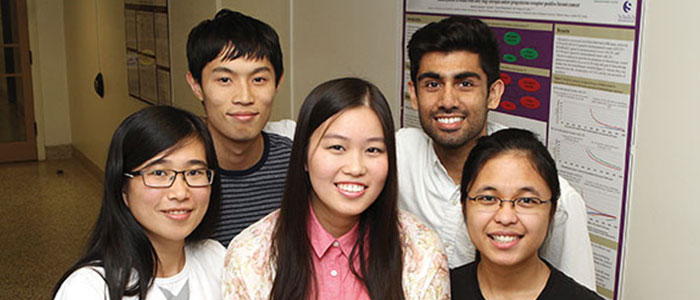Unique Programs

The Bachelor of Medical Sciences Program is offered jointly with the Faculty of Science and the Schulich School of Medicine & Dentistry. In the first two years, you will be taking more general courses (biology, chemistry, genetics, organic chemistry, etc.) with the Faculty of Science. In your third and fourth years, you will explore more advanced study in one or more of the basic medical sciences.
In addition to an interdisciplinary program, the seven basic medical science departments offer over 30 specialized areas of study. Four of the more unique programs are Epidemiology and Biostatistics, Medical Biophysics, Medical Health Informatics, and One Health.









